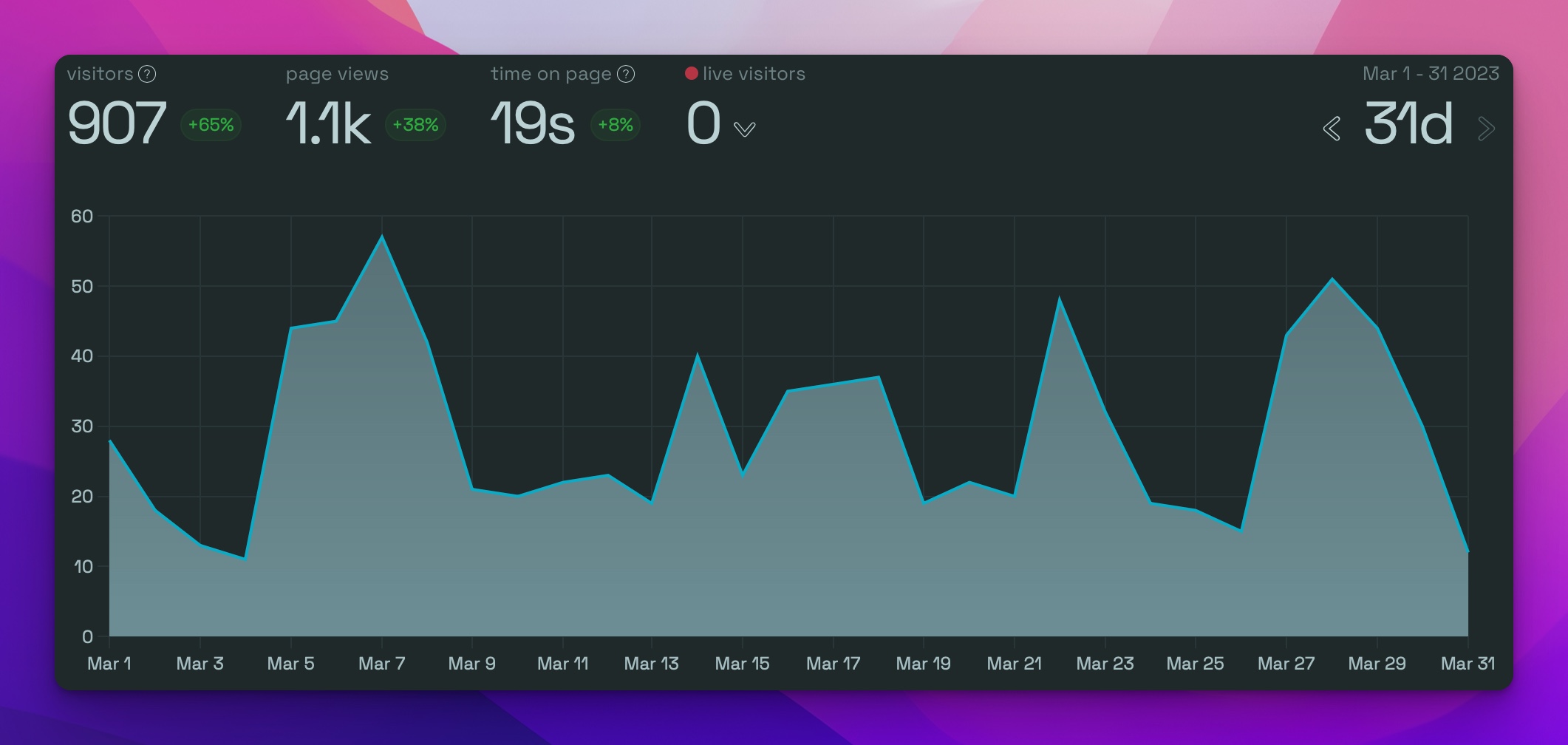Dang, it's already Spring.
In March, I celebrated my 32nd birthday, got a new laptop (a M2 Max Macbook Pro), and released a huge update to SwiftStarterKits. The first few weeks of the month I was massively productive, simultaneously fielding support requests, doing product and marketing work. But once I released version 1.2 of SwiftStarterKits on the 27th, I ran out of steam.
I've long occilated erratically between overwork and burnout. It's something I openly acknowledge, and am trying to work on. Especially in this new phase of my life where I'm building my own indie software business, sustainable work habits are key.
So, I took a week off. I'm happy to say that after some self-reflection and rest, I'm refreshed and eager to tackle the next big product push.
SwiftStarterKits Updates
On March 27th I released SwiftStarterKits Version 1.2, which was equal parts product update and a total overhaul of the SwiftStarterKits Xcode project architecture.
There were a couple high level goals in mind before I got to work:
- Improve modularity, so components are more easily used in existing products.
- Release a product demo via TestFlight, to enable testing of the module and kit libraries.
The number one complaint I've gotten from non-customers was that there's no demo or product examples available on the website, making it unclear of what is being purchased. The TestFlight beta will hopefully alleviate this, but I also plan to get a screenshot library available on the website too.
The long term vision for SwiftStarterKits is to have several kits for high level usecases (social media, ecommerce, etc). Up until now, I've spent a fair amount of time building foundational integrations: authentication, settings, onboarding, permissions, in-app purchases. In short, the universal bits of functionality that most apps need. Ultimately, I want these to be merely the foundation, with the core product being an end-to-end template for a production-ready suite of apps that live alongside documentation, guides, and tools for code/project generation.
I had to start somewhere, but I'm almost at the point where full blown application templates can be a reality. Once the documentation suite is hosted (which I'm working on now!), I'm moving on to the first high level kit.
Metrics
SwiftStarterKits has continued the trend of increased month over month site visits, which has resulted in more frequent sales:

The majority of traffic is coming from organic Google search, with a little bit from Twitter (Roughly a 90/10 split, in favor of search traffic to social). I'm happy with how things are trending, and am eager to invest in more frequent blog posts, articles and guides (which I've hardly scratched the surface on).
Next Steps
In April, I'm focusing on:
- Improving documentation and getting hosted docs available on the SwiftStarterKits website.
- Integrating RevenueCat, to finish out the in-app purchase story for which I've already built configurable UI's.
- Migrating UIKit navigation to SwiftUI, which will be key as I inch towards making existing kits multiplatform.
With these three problems solved, I'll have a much better foundation for building the next major kit (I'm planning something with A.I.). Stay tuned!
